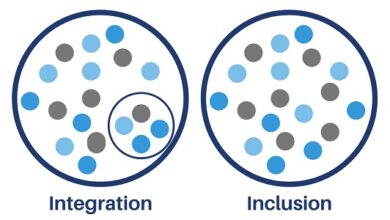What is a Traditional Society Main Characteristics and Types
A traditional society , in the field of sociology, is a society that is based on the rules and customs established in the past and therefore has great respect for tradition and the forms of behavior it dictates. This type of human society is characterized by the importance of the family and traditional social roles.
These roles are, for example, those marked by people’s age, status and gender. Traditional societies are often compared to modern, industrial societies. In many ways, both types of social organizations have completely opposite characteristics.
For example, in traditional societies, greater importance was given to community, while in modern societies more emphasis was placed on society as a whole. Traditional societies were the predominant way of organizing communities until the arrival of the Enlightenment.
This movement questioned traditions in the West and focused on promoting other values such as equality, progress or knowledge.
Enhance your Reading: Abductive argument features structure and examples
Features of a traditional society
While each has some quirks, most traditional societies share a number of common characteristics. The most important are the following:
Importance of traditions
A traditional society is based on the idea that the best way to tackle the typical problems of a society is through the use of traditions and norms that have been proven over time. Therefore, the population of these societies resists any kind of innovation.
In traditional societies, institutions such as organized religions are primarily responsible for dictating citizens’ codes of conduct.
Greater importance of family and small communities
Today, most modern societies share universal values such as freedom, equality or justice.
However, in traditional societies, the prevailing values focused more on family, tradition and the protection of the community itself.
For this reason, the inhabitants of these societies used to be very little open to outsiders, and relationships with “outsiders” were socially frowned upon and penalized.
Difficulty changing social status
Due to the importance of traditions and the immobility of ways of life, a person could not easily change his own social status.
In general, a person’s position in society was acquired at birth and, with few exceptions such as marriages, could not be changed.
predominance of agriculture
Due to the lack of technological advances, traditional societies were organized around agriculture and nature.
This can be seen in their beliefs, traditions and ways of behaving. For example, village activities were organized around harvest cycles.
Little mobility between communities
Due to distrust of foreigners and the requirement for all possible labor to maintain a traditional society, it was very difficult for an individual to leave his community and move to another.
Thus, the exchange of ideas and knowledge was scarce and difficult to achieve.
Distance between the population and the government
In a traditional society, the population had little or no power over how it was governed. People in power operated independently of their citizens, and exerting pressure to change things was unthinkable.
Lack of education of the population
Due to all the above characteristics, the majority of the population in a traditional society did not have access to a large number of knowledge.
Among other things, most of the inhabitants of these communities were illiterate; This was because manual work was given much greater importance than theoretical knowledge.
types
Throughout history, different types of societies have emerged, each with specific characteristics. In traditional societies, we can mainly distinguish two types:
tribal societies
The organization of the population was made around small nomadic tribes that lived by hunting, fishing and gathering.
The feeling of unity among the members of the tribe was very strong, so on many occasions individuals sacrificed themselves for the common good. Sometimes the concept of parenthood didn’t even exist, so there was no family group.
agricultural companies
As agricultural techniques began to expand, the tribes settled in a fixed location and formed larger and larger communities.
In these communities, the need for protection against other cities arose, and thus a social group emerged: the nobility. This one was in charge of security in exchange for allegiance.
In general, when we talk about traditional society, we refer to agrarian societies, also known as feudal societies.
Traditional society according to Weber
Weber explained this type of society on the basis of the concept of traditional authority. According to him, in some societies, leaders get their power through tradition, because “things have always been done that way”. This contrasts with the other two types of power he described, which were charismatic authority and rational authority.
According to Weber, in these societies power was acquired at birth and the rulers had no authority beyond what tradition gave them.
Therefore, power depended on members of society who respected the ruler’s authority.
Traditional Durkheim Society
Durkheim, considered by many to be the father of modern sociology, studied the social changes brought about by the division of labor. For him, this was the main difference between traditional and modern societies.
In addition to improving the living conditions of workers, the division of labor also caused changes in the way of life and the rejection of traditional values (what he called anomie).
Therefore, the more modern a society is, the fewer social norms are present and the greater problems occur.
For Durkheim, traditional societies kept the most problematic instincts of the population at bay through traditions and religions. According to this sociologist, the lack of these social conditions could lead to the population’s suffering and self-destructive instincts.


